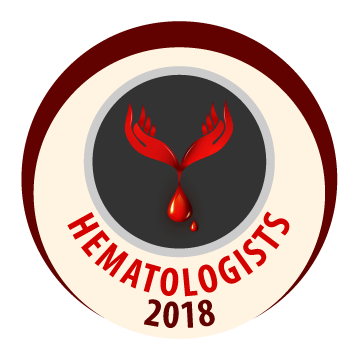
B Yusuf Jamoh
Ahmadu Bello University Teaching Hospital, Nigeria
Title: Prevalence of Lewis, Kidd, Duffy, Kell and M blood group antigens among blood donors in Aminu Kano Teaching Hospital, Kano, Nigeria
Biography
Biography: B Yusuf Jamoh
Abstract
Background: Haemolytic transfusion reactions are generally the result of transfusion of ABO incompatible blood. However, weak antibodies notably of the Rh, Kell, Kidd, Duffy, MNS and Lewis blood groups that do not seem to be clinically significant in vitro have also been reported to cause antibody formation, severe transfusion reactions and haemolytic disease of the newborn (HDN).
Aim: To determine the prevalences of Lewis, Kidd, Duffy, Kell and M antigens among blood donors in Kano.
Method: Consecutive blood sample of consenting blood donors at Aminu Kano Teaching Hospital blood donor bay were tested with potent commercially prepared anti Lea, anti Leb, anti Jka, anti Jkb, anti Fya, anti Fyb, anti k and anti M antisera.
Result: One hundred and six samples were screened each with the eight anti sera. The prevalence of the different antigens are as follows: Lea: 26.4%, Leb: 15.1%, M: 20.8%, k (cellano): 21.7%. The Duffy (anti Fya, anti Fyb) and Kidd (anti Jka anti Jkb) antigens were not detected among the donors.
Conclusion: The finding of this study highlights high prevalence of the Lewis, M and Kell antigens among our donor population, which can serve as an additional data towards provision of safe blood transfusion. Incorporation of extended blood group phenotyping prior to transfusions will go a long way in reducing the rate of antibody formation, transfusion reaction and HDN especially among transfusion dependent patients in our environment.

